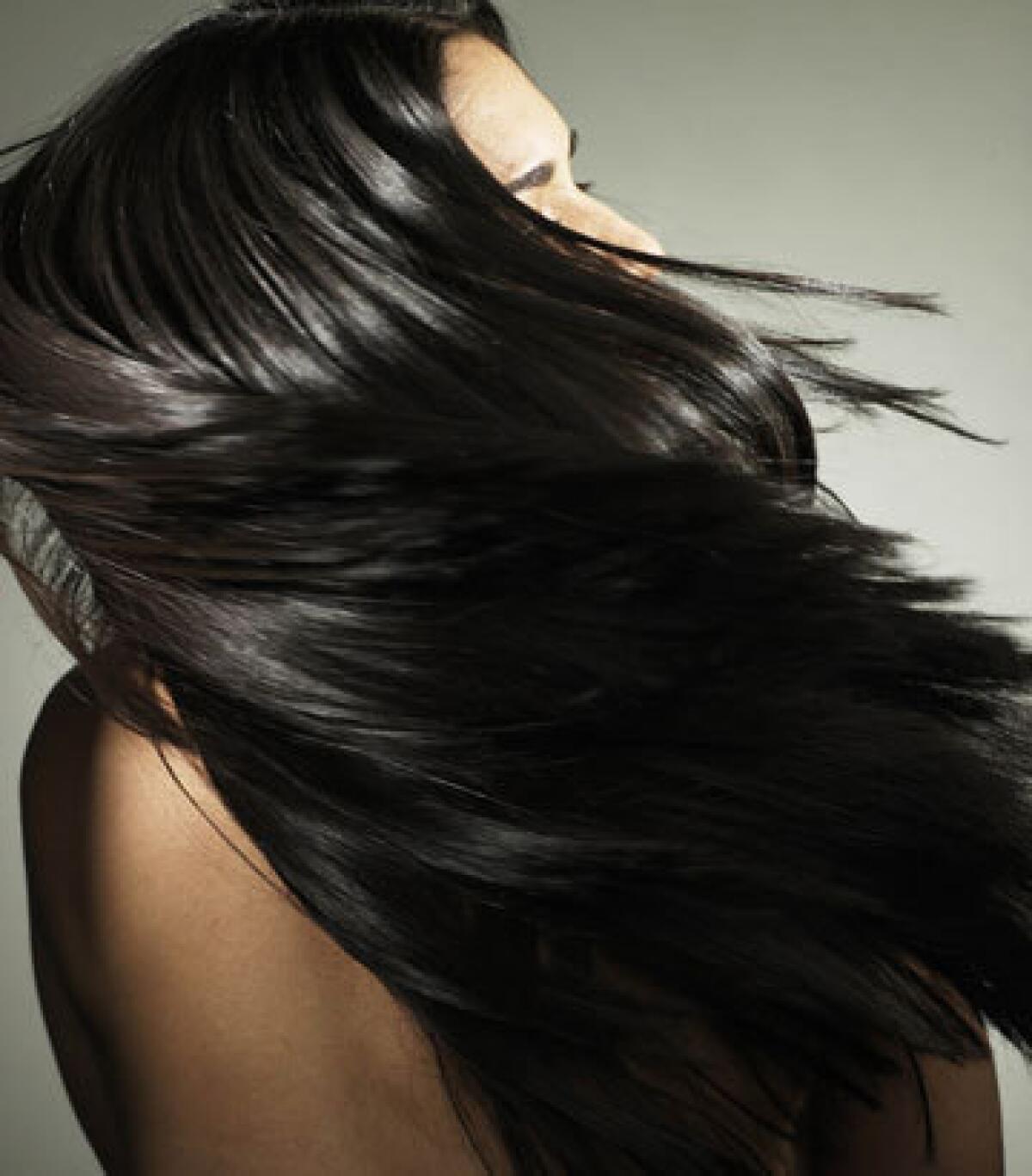Better hair with less care

- Share via
We’re putting more gels, dyes, herbs and general gunk in our hair than ever before. But, in fact, there’s something beautiful about simplicity.
“People say they have bad hair, and they need to do a lot to it,” says Dr. Zoe Draelos, a consulting professor of dermatology at Duke University and a fellow of the American Academy of Dermatology. “The opposite is true. The less you handle your hair, the better.”
Let’s take a look at the basics. Each hair is a strand of dead cells coated in natural oils and the dirt that you pick up throughout the day. Remember: We’re talking about one of your better features here.
A lot of the thanks, or blame, for your hair should go to your genes. But whether your hair is naturally thick and full or thin and wispy, you can make the best of it with the right products.
Dr. Matt Leavitt, president of the Hair Foundation and medical director of Advanced Dermatology and Cosmetic Surgery, says there are only two essentials for clean, healthy-looking hair: shampoo and conditioner.
The shampoo, which really cleans the scalp more than the hair, needs to match your scalp type: dry, normal or oily. Shampoos designed for oily scalps often contain relatively larges amounts of lauryl sulfate, a strong all-purpose cleanser. Shampoos for drier scalps will usually include a healthy dose of laureth sulfate, a gentle cleanser that’s easy on hair.
The conditioner, Leavitt says, helps fortify the outer layers protecting each hair. Conditioners give hair shine and flexibility while preventing annoying static.
It can take some real trial and error to find a conditioner that you like. Draelos says you can narrow your search by keeping your hair type in mind. A heavy conditioner can help tame thick, kinky hair, she says, but people with fine, straight hair need a lighter touch. Fine hair that is over-conditioned will look limp and greasy.
Conditioners containing keratin or similar proteins can help mend split ends and generally give new life to damaged hair.
A good two-in-one product should work just as well as a separate shampoo and conditioner, Leavitt says. The clear implication: Women should stop giving the men in their lives grief about the big green bottle in the shower. It’s science. So there.
More hairy tips:
• Unless you have a really grimy job or an excessively oily scalp, you don’t need to shampoo every day, Draelos says. And you can skip the “repeat” after the lather and rinse. As she explains, the scalp’s natural oils are the ultimate hair conditioner. Over-washed, super-clean hair can be frizzy, dull and hard to style.
• If your hair is damaged by dyes, perms or the sun, try rubbing in a few drops of hair serum — sold at any drugstore — after a wash.
• High-priced shampoos sold at salons and cheap shampoos at the grocery store have the same cleansing ingredients. What do you get for the extra bucks? “Fragrances and packaging,” Draelos says.
• According to Draelos, you don’t need to worry about foaminess when choosing a shampoo or conditioner. All of that extra foam is mainly just for show.
• The same thing with vitamins. They may look enticing on a shampoo label, but there’s no good evidence that they’ll make hair look any cleaner or healthier.
• Thick, creamy conditioners tend to be more moisturizing than thinner, runnier conditioners, Leavitt says.
• One truly bad idea: Turning a max-power drier on sopping wet hair. “The water on your hair can actually boil, causing incredible damage,” Leavitt says. “It’s called ‘bubble hair.’ It looks dull and it breaks easily.” Instead, he recommends towel-drying first and using a less-than-nuclear drier setting.
• The right kibble means a shinier coat. Wait, that’s dogs. But the basic principle works for people too.Omega-3 fatty acidsfrom sources like salmon, flax seed or supplements can give you extra luster, Leavitt says. On the other hand, he warns that hair can turn dull and brittle if you don’t get enough protein. Vegans take note.






